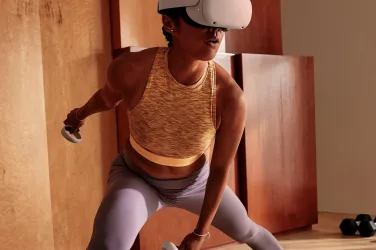
By Audrey Sellers
School is almost back in session, which means you can soon expect to see enrollment flyers and registration forms coming home in your kids’ backpacks. No doubt, many of these forms will promote extracurricular activities. From soccer and science club to music and math club, there’s an extracurricular activity to suit nearly every kid’s interests and talents.
But how do you pick the best ones for your child? But how do you pick the best ones for your child? Here are some helpful pointers for your search.
Collaborate With Your Kids
Choosing an activity that aligns with what your children want to do is essential. Sit down with them and ask them what sport, club, or activity sounds fun or exciting to them. Remember that your children may not share your same love of softball or piano — and that’s okay.
Consider Your Kids’ Natural Strengths
Maybe your child can run like the wind or shoot hoops like a pro. Or maybe your kid has some serious skills in singing or painting. Think about where their natural talents would shine in an extracurricular activity, and then sign them up for the group that fits best.
Think About Time Commitments
Depending on your kids’ ages, they may have a heavy amount of homework. You don’t want to overbook their schedules, so they don’t have ample time to study or sleep. According to the American Academy of Sleep Medicine, most teens need eight to 10 hours of sleep each night, while younger kids need nine to 12 hours of shuteye. Also, consider how your kids will get to their various activities. While teens may be able to drive themselves, younger children will need transportation.
Try a Trial Run
Some extracurricular activities let kids try out a free class or session before fully committing. You and your children could also go and watch a game or sit in on an activity to see if it’s something they would enjoy.
Remember the Benefits
When choosing the best extracurricular activity for your children, consider what they’ll gain from the experience. For younger kids, participating in extracurricular activities could help them build confidence and boost their social skills. The benefits for older kids could include learning more about themselves and improving their time-management skills.
Support Your Kids’ Choices
It may take some time for your children to find the right activity. Sometimes, a sport or club doesn’t turn out to be a great fit. It can be counterproductive to force your kids to continue something that distresses or doesn’t interest them. Instead, try to find a balance between teaching your children the importance of commitment while also helping them find something that suits them better.
A New Start
The start of a new school year means new opportunities for kids to grow their skills and social circles. The American Academy of Pediatrics says most children are ready to participate in extracurricular activities like sports by age six. Consider the points above to help make the smartest extracurricular selections for your children.
Where to Start
While each school and community offer different extracurricular activities, here’s a sample of some possible opportunities for your children:
- Team sports like football or volleyball
- Individual sports like swimming or golf
- Music-forward extracurricular activities like concert band or school choir
- Performance arts like dance or theater
- Scouting groups
- Arts-based extracurricular activities like art club or ceramics club
- Special interest groups like chess club or horticulture club
- Social activism groups like an animal rights club or fair-trade club
- Religious extracurricular activities like church youth groups or mission work
- Martial arts like karate or jiu-jitsu
- Military extracurricular activities like Junior ROTC
- Volunteering activities like helping at an animal shelter or cleaning up local parks or lakes










